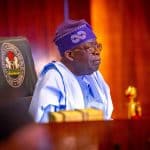As Nigerians face yet another week of rolling blackouts due to the collapsing National Grid, the public outcry has intensified. Many question why, with abundant resources and the recent governmental promises, Nigeria remains stuck in the dark.
This crisis is no longer just a technical issue; it’s an indictment of years of mismanagement, lack of investment, and an unwillingness to prioritise energy reform.
Join our WhatsApp ChannelIn October alone, three grid collapses highlighted the gravity of Nigeria’s power situation, bringing frustration for citizens and stress to an already fragile economy. According to Ndidi Mbah, General Manager of Public Affairs at the Transmission Company of Nigeria, the current power generation system is managing to limp along through temporary fixes rather than enduring solutions. “Our grid disturbances have reduced by 76.47 percent since 2020,” she remarked, but the frequent blackouts tell a different story. This disparity has left Nigerians skeptical and increasingly vocal about their need for reliable energy.
“Living in Darkness”: The Reality of a Failing National Grid
For many Nigerians, power failures have become a daily reality, one that impacts every aspect of life, from education to business. Daniel Elekue, a barber shop owner in Lagos, has endured the costs of running a fuel generator just to keep his shop open. “I spend more on fuel than on inventory some months,” he said. “Every time the National Grid fails, it’s like a tax on small businesses. The government needs to act; we can’t keep living in darkness.”
Comfort Adewale, a nurse at a Lagos hospital, sees the risks firsthand. “During critical surgeries, a power failure can mean the difference between life and death. We do our best to manage, but we’re always worried the backup generators might fail,” she explained.
Adewale noted how, in emergencies, the hospital sometimes has to delay procedures until stable power returns, a situation that has left both patients and medical professionals on edge. “The National Grid fails so often that even patients know to expect power cuts. Families come here worried about whether we’ll have electricity through their loved ones’ treatments,” she said. “This isn’t normal, and it isn’t safe. It’s time for the government to prioritize healthcare in its energy plans.”
Aminu Bello, the café’s owner, explains how the National Grid’s failure has directly impacted his business. “I run a service where students come to register online for examinations, and power failure means our systems go down unexpectedly. These students don’t have time to wait around, and I end up losing business. I’ve had to invest in multiple backup generators and inverters just to stay operational,” he shared.
Bello expressed frustration with the rising cost of maintaining an alternative power supply, which eats into his profits. “I spend almost as much on fuel as I do on rent,” he said. “This isn’t sustainable. The government needs to step up. Running a café should not be this difficult in a country with resources like ours. We need a grid we can rely on.”
In fact, Nigeria’s potential for reliable energy is vast. The country is rich in gas, rivers, and sunlight—each a potential source of power. Yet this wealth has largely gone untapped due to lack of infrastructure investment and regional political challenges. The nation’s grid has become a symbol of these missed opportunities and has driven many to question the priorities of Nigerian leadership.
Calls for Change: Expert Opinions on Nigeria’s Power Crisis
Experts agree that Nigeria’s National Grid infrastructure is outdated and ill-suited to meet the demands of a growing population.
Nigerian energy expert and engineer Dr. Ada Nwoke highlights another key issue: decentralisation. “The grid is too centralised, making it vulnerable. If we decentralised and allowed mini-grids or regional grids, the impact of a failure would be contained,” she explained. Decentralisation, she suggests, could stabilise the national system and allow for innovation at the regional level.
Power Minister Adebayo Adelabu recently acknowledged the critical state of the nation’s power system, admitting, “The grid’s collapse is inevitable given the current infrastructure.” According to Adelabu, true reform is essential. “Until we can overhaul the entire infrastructure, this will continue. We’re simply managing a failing system.”
Why Previous Government Promises on Power Reform Have Fallen Short
Nigeria has received multiple loans, amounting to $4.36 billion, from the World Bank over the past decade, yet reforms remain minimal. In addition, the lack of consistent and reliable power has deterred foreign investment, as businesses are wary of entering an unstable energy market. For many Nigerians, the government’s inability to transform these loans into tangible results has led to growing distrust.
Lawrence Eze, an energy analyst, elaborated on the challenges: “In other countries, government loans and foreign investments are channeled into sustainable projects, creating growth for the economy. Here, the funds often disappear into bureaucratic voids, and the people continue to suffer.”
For Eze, the decentralisation of Nigeria’s power sector is long overdue. He sees a move towards solar and wind energy as not only a practical solution but also a moral imperative. “We have one of the most conducive environments for solar energy in the world,” he said. “But we need a plan, not more promises. We can’t keep expecting change when we keep doing the same thing.”
READ ALSO: Poor Management Responsible For National Grid Collapses – Amadi
Decentralisation: A New Path Forward for the National Grid?
The Federal Government’s current approach focuses on incremental upgrades to an outdated system, with recent promises to ensure “20-hour daily power supply by 2027.” However, critics argue that without decentralisation, Nigeria’s power issues will persist. Experts like Dr. Nwoke emphasise that Nigeria’s centralised grid structure makes it fragile. “Decentralised mini-grids could serve local needs efficiently, without relying on the National Grid’s stability,” she said.
Decentralising the grid would involve implementing regional power generation and distribution systems, allowing states or regions to maintain their own energy needs. This, many experts argue, would reduce the impact of nationwide grid failures and encourage investment in renewable energy sources like solar photovoltaics and wind turbines.
In rural and urban areas alike, alternative energy could provide a lifeline, delivering power to communities that have been neglected by the centralised system. Building these localised power sources would not only lessen the load on the National Grid but also increase employment and technical skill opportunities within those regions.
“This Is an Emergency”: Nigerians Demand Immediate Action
The call for reform goes beyond the energy sector and has become a rallying cry for broader change. Citizens are now calling for an overhaul of the entire system that has long left them in darkness. A Youth businessman, Arinola Samuel emphasises that reliable power is not only about business but about quality of life. “Children have to study by candlelight; hospitals delay surgeries due to power outages. It’s not just frustrating; it’s dangerous,” she said. “This is an emergency, and the government has to treat it as one.”
Given the current climate of dissatisfaction, Nigeria’s government faces growing pressure to prioritise energy sector reform genuinely. Adelabu and other officials now have the opportunity to initiate a much-needed transformation, one that could reshape Nigeria’s economy and position it as a leader in African energy production.
Final Thoughts: Time for Nigeria to Power Up
The repeated collapse of the National Grid exposes Nigeria’s energy crisis as more than a mere technical issue. It’s a national failure that affects millions and demands immediate, actionable solutions. For citizens like Ahmed Bello, who struggle to maintain businesses, and families who rely on generator-powered schools and hospitals, this is a problem that can no longer be ignored.
To avoid further deterioration of the country’s power infrastructure, Nigeria’s government must not only overhaul its National Grid but also embrace decentralisation and explore alternative energy sources. Without substantial change, experts and citizens alike warn that Nigeria’s power issues will only grow, leaving a legacy of missed potential and darkness.
It’s time for Nigeria to power up.
Emmanuel Ochayi is a journalist. He is a graduate of the University of Lagos, School of first choice and the nations pride. Emmanuel is keen on exploring writing angles in different areas, including Business, climate change, politics, Education, and others.
- Emmanuel Ochayihttps://www.primebusiness.africa/author/ochayi/
- Emmanuel Ochayihttps://www.primebusiness.africa/author/ochayi/
- Emmanuel Ochayihttps://www.primebusiness.africa/author/ochayi/
- Emmanuel Ochayihttps://www.primebusiness.africa/author/ochayi/


















Follow Us